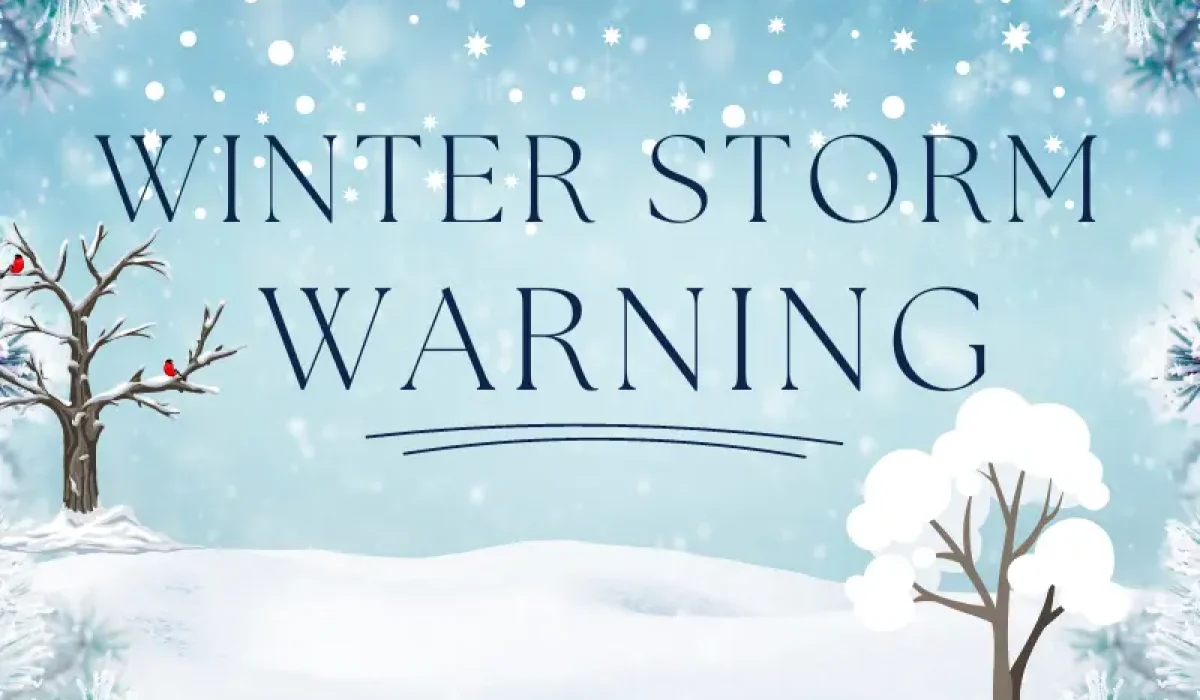The Autumn season has a special charm. But in order to be prepared for the different weather conditions during your fall hiking trips, you need to take a few precautions. But in the winter it is very different.
Winter weather can be a beautiful sight, but it can also be dangerous if you’re not prepared. In order to ensure that your home is safe and secure during the cold winter months, it’s important to take the necessary cold weather precautions for your home. From inspecting your roof and windows to ensuring your chimney is in good working order, there are several steps you can take to protect your home this winter. In this blog post, we will be discussing nine cold weather precautions for your home this winter, so that you can keep your home safe and secure during the colder months, and hence live a happier life.
Table of Contents
Check your home’s insulation:
Winter weather can be unpredictable, and if you don’t take the necessary precautions, it could cause significant damage to your home. Proper insulation is essential for keeping your home warm and protecting it from the elements. Before the cold weather sets in, take a few steps to make sure your home is properly insulated.
First, check for any gaps or cracks in the walls, ceilings, and floors of your home. These can let cold air in and cause your energy bills to skyrocket. Caulk and seal these areas to keep the cold air out. Also, inspect any outdoor water pipes and make sure they’re insulated. This will help prevent them from freezing during periods of extreme cold.
In addition, you should also inspect your attic insulation. Make sure that it’s thick enough and free of moisture. If necessary, add extra insulation to make sure your attic is sufficiently insulated. Insulation is one of the most important cold weather precautions for your home. By taking the time to check and reinforce your home’s insulation, you can save money on energy bills and keep your home safe during the winter months.
Check your home’s heating system:
Before winter arrives, it’s important to make sure that your home’s heating system is running efficiently and safely. The best way to do this is to have a professional heating contractor or one of the many heating and air conditioning companies inspect your system. They can check for any leaks or faulty components that need repairs and make sure that your system is running properly.
If you don’t have a service contract with a heating company, consider hiring a heating contractor for an annual tune-up. This will help keep your system running smoothly and efficiently throughout the cold weather months. It’s also wise to have a qualified technician come out to take a look if you ever experience issues like strange noises coming from your furnace, or if it starts running less efficiently than usual.
Don’t wait until the temperature drops to address any problems with your heating system. Scheduling routine maintenance and repairs with a professional heating contractor can save you money in the long run, as well as give you peace of mind that your home will be comfortable and safe all winter long.
Install storm windows:
Winter weather can bring damaging winds and rain that can leave your home vulnerable to water damage and other hazards. Protecting your windows is essential to keeping your home safe in winter weather. Installing storm windows is one of the most effective ways to keep your windows secure against harsh winter elements. Storm windows are designed to fit over existing windows and provide extra protection against moisture, wind, and debris. Additionally, installing hurricane windows can provide additional protection against strong winds, flying debris, and even pressure changes associated with severe weather. When it comes to protecting your home this winter, investing in storm or hurricane windows can make a big difference. The cost to install storm windows can vary depending on the size and type of window you’re looking to protect but typically runs from $1,000-$2,000 per window. Some homeowners opt to replace their older single-pane windows with double-paned storm windows to help prevent air leakage during cold weather months. While double-paned windows cost more upfront, they offer superior energy efficiency which helps reduce heating costs during winter months.
Additionally, installing hurricane windows can help protect your home from high winds as well as airborne debris during storms. These specially designed windows typically cost $5,000-$15,000 per window depending on size and materials used. While these types of windows come with a higher initial cost than regular storm windows, they offer superior protection against extreme weather conditions which could save you money in costly repairs down the road.
Protect your pipes:
When temperatures drop below freezing, the risk of your water pipes freezing and bursting increases. Fortunately, there are several steps you can take to protect your pipes from freezing. Here are a few tips on how to keep your pipes safe during cold weather:
1. Insulate exposed pipes in unheated areas:
Any exposed pipes should be insulated with insulation material specifically designed for pipes. This will help keep them at a warmer temperature and prevent them from freezing.
2. Keep the indoor temperature consistent:
This is especially important if you are leaving your home vacant for an extended period of time. Setting the thermostat to a consistent temperature (at least 55 degrees Fahrenheit) will help ensure that your pipes don’t freeze.
3. Open the cabinets and cupboards under sinks and appliances:
This will allow warm air to circulate around any pipes that may be in these areas, helping to keep them from freezing.
4. Disconnect all outdoor hoses and drain any remaining water from them:
This will help prevent the water from freezing inside the hose and put extra pressure on the pipe connected to it.
5. If you have a problem area:
Such as an outdoor spigot or an older plumbing system, you may need to add additional insulation or heat tape to those areas to help prevent freezing pipes.
Taking these simple steps will help protect your pipes from freezing during cold winter weather.
Stock up on winter supplies:
Winter can be unpredictable, and it’s important to be prepared for a winter storm before it arrives. Creating a winter storm preparation checklist is an essential part of being prepared for the cold weather ahead. When making your list, consider what items you need to stock up on before winter hits. Here are some of the essential winter supplies for the home:
• Ice melt: Ice melt can help keep pathways and driveways free of ice, snow, and slippery spots.
• Rock salt: Rock salt helps to clear roads, sidewalks, and driveways of snow and ice.
• A shovel: A good-quality shovel is essential for clearing snow quickly and safely.
• Sandbags: Sandbags can be used to build walls to prevent flooding or to provide extra weight on driveways.
• Snowblower: If your driveway or sidewalk has more than a few inches of snow on it, a snow blower is an invaluable tool.
• Snow scraper: This tool is used to remove snow and ice from your car’s windshield without scratching the glass.
• A warm coat: Keeping a warm coat handy during the winter months is essential for staying safe and comfortable in cold temperatures.
• An emergency kit: An emergency kit should contain flashlights, batteries, food, water, blankets, first aid supplies, and other essential items in case of an emergency.
By making sure that you have these winter supplies in your home, you can be prepared for whatever winter throws your way.
Clear your gutters and downspouts:
Gutters and downspouts play an important role in keeping your home safe during winter weather. They help divert water away from your roof and foundation, which can prevent water damage and other costly problems. Regularly cleaning out your gutters and downspouts is essential to keeping them in good working order.
It’s important to clean out your gutters and downspouts before the cold weather sets in, as debris can cause blockages which can lead to further damage. To do this, you will need a ladder, a trowel, a bucket, and some gloves. If the task seems daunting, you can also hire a professional.
If you don’t feel comfortable climbing a ladder, there is an alternative method for how to clean gutter downspouts from the ground. First, you’ll need a garden hose with a nozzle that can shoot water at high pressure. Use the nozzle to spray the inside of the downspout until all debris is removed. Then, if you can reach it, use the trowel to remove any stubborn debris from the top of the downspout. Once finished, make sure to clear away any debris around the base of the downspout before putting your tools away.
Prepare your vehicles for winter weather:
Winter weather can cause serious damage to your vehicles, so it’s important to be prepared. Before the cold weather hits, make sure to check your vehicle’s oil, brakes, battery, and tires. Additionally, you should have a winter emergency car kit in your vehicle for any unexpected winter situations.
A winter car emergency kit should contain items such as a flashlight with extra batteries, a first aid kit, a snow shovel, warm clothing, jumper cables, a warning triangle or road flares, a blanket, an ice scraper and brush, a bag of sand or cat litter, energy bars, and water. Also, consider keeping some cash in small denominations on hand in case you need to make an emergency phone call.
These supplies will help you be prepared for any winter emergency. Make sure to store them in your car at all times so that you are always ready for whatever winter throws your way.
Install a carbon monoxide detector:
If you’re looking for ways to winterproof your home, one of the most important steps is to install a carbon monoxide detector. Carbon monoxide poisoning is a real danger during cold weather and can be fatal if left undetected. Carbon monoxide is a colorless, odorless gas that is produced when fuel-burning appliances are not vented properly or are malfunctioning. Symptoms of carbon monoxide poisoning can range from headaches and nausea to vomiting and confusion, so it’s essential to take steps to protect your family.
Installing a carbon monoxide detector is easy, and there are many models available on the market. When shopping for a detector, look for one that is UL-certified, which means it meets safety standards set by Underwriters Laboratories. Make sure to install the detector near sleeping areas in your home and follow the manufacturer’s instructions for maintenance and testing. If your detector goes off, evacuate your home immediately and call for help.
Keep emergency supplies on hand:
Winter weather can be unpredictable, so it’s always a good idea to prepare for the worst. Having a few essential supplies on hand can be invaluable in an emergency. It’s important to keep items like extra food and water, blankets, flashlights, and a first aid kit. You may also want to have specific items on hand to help with winter health issues like colds, flu, and allergies. Make sure you have basic over-the-counter medications like ibuprofen, cough syrups, and allergy medication in case anyone in your family gets sick. If you are concerned about more serious illnesses like influenza or ebola, you may want to have masks, gloves, and other protective gear available.
Taking a few precautions to make sure your home is winterproof will go a long way toward keeping your family safe. Be sure to check your home’s insulation, heating system, windows, pipes, and gutters for any signs of damage that could lead to bigger problems. Stock up on essentials like food and water, and make sure you know how to winterproof your home from cold weather. And remember, having the right supplies on hand can make all the difference if an emergency situation arises.




